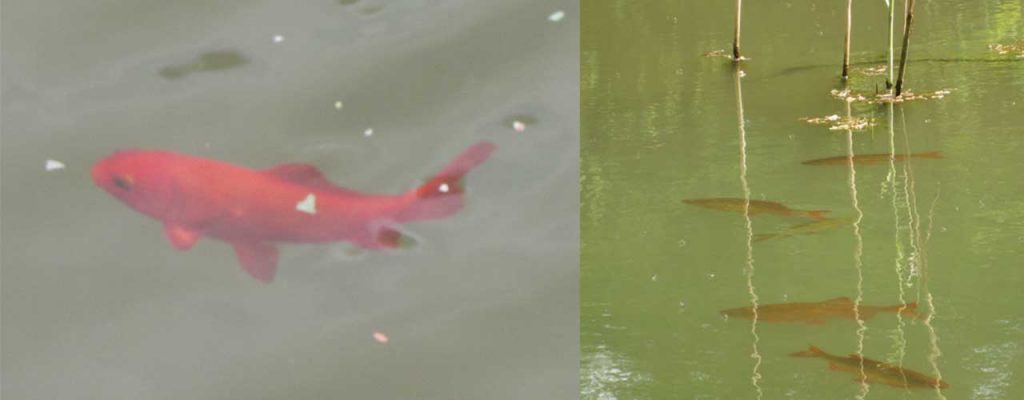Understanding Cloudy Pond Water
Is your pond water looking a bit cloudy? There’s no need to worry as this is a common problem in ponds and the good news is that it can often be resolved with a few simple steps. In this guide, we’ll explain what causes cloudy water in ponds and what you can do to clear it.
What causes cloudy pond water?
Cloudy Water is caused by tiny particles of waste suspended in your pond’s water.
Unlike a river or sea, ponds do not have a natural filtering process to help keep these particles settled. If left untreated, these particles can build up, leaving your water looking murky and hard to see through.
Some signs of cloudy pond water can include:
- Particles of waste, bacteria or algae in the water
- Bits in the water, such as floating dirt
- Being unable to see the fish in your pond
- Green or brown pond water
- Heavy silt and waste deposits
Why is my pond water cloudy?
There are a few reasons why your water is cloudy, such as:
- New pond – your pond is new and unbalanced, leading to an upsurge in organic debris and nutrients which can cause cloudiness in the water. It’s common for new ponds to experience this as they establish their ecosystem.
- Overfeeding – If you’re feeding your fish too much or too often, it can lead to excess waste and uneaten food breaking down in the water. As the uneaten food breaks down, it releases particles that cause cloudiness.
- Algae – algae growth can also contribute to cloudy water, especially if there’s an overabundance of nutrients in the pond. Algae blooms thrive on excess nutrients, leading to green or murky water.
- Poor filtration – If your pond’s filter isn’t working properly or is too small for the volume of your pond, it may not be able to remove enough particles from the water leading to cloudy water.

Will cloudy water affect my fish?
Whilst cloudy water is unlikely to affect the well-being of your fish or plants, it is an eyesore and can affect enjoyment of your pond. In extreme cases, cloudy water may reduce oxygen in your pond causing gasping and rapid gill movement in your fish..
How to clear cloudy pond water
1. Treat your water
The primary way to resolve cloudy water is to remove excess waste and establish a regular maintenance routine. Regularly treating your pond with a sludge treatment or Clean Pond Pods will help to keep waste levels down.
2. Remove any notable waste
Over the course of the year, it can be easy for your pond to take in debris such as leaves, branches, or dead plants. Use a cleaning net to skim your pond’s surface every so often, clearing any visible debris to reduce the buildup of organic matter.
3. Avoid overfeeding your fish
If you keep fish in your pond it is worth assessing your feeding and stocking levels as overdoing it in either of these areas will lead to larger levels of waste. See – Are you feeding your fish too much?
4. Use a pond filter
If cloudy water is becoming a frustrating and common problem in your pond you could consider using a pond filter which will help to remove excess nutrients and waste products like sludge. A Filter will also create a healthy biological filter in your pond to reduce water quality issues and create a better environment for fish.
If you already have a filter in your pond, make sure to check that it’s working as it should be. You should clean the filter every 2-4 weeks to avoid any build-up of dirt and debris which could cause your filter to suffer.
How long will it take for my water to clear?
If your pond is newly established, it may take several weeks for the water to clear as the ecosystem balances itself. For existing ponds, the water should clear within 24 hours of using an appropriate water treatment. Once your water is back to its best it’s important to stay on top of a regular maintenance schedule to prevent future issues.
